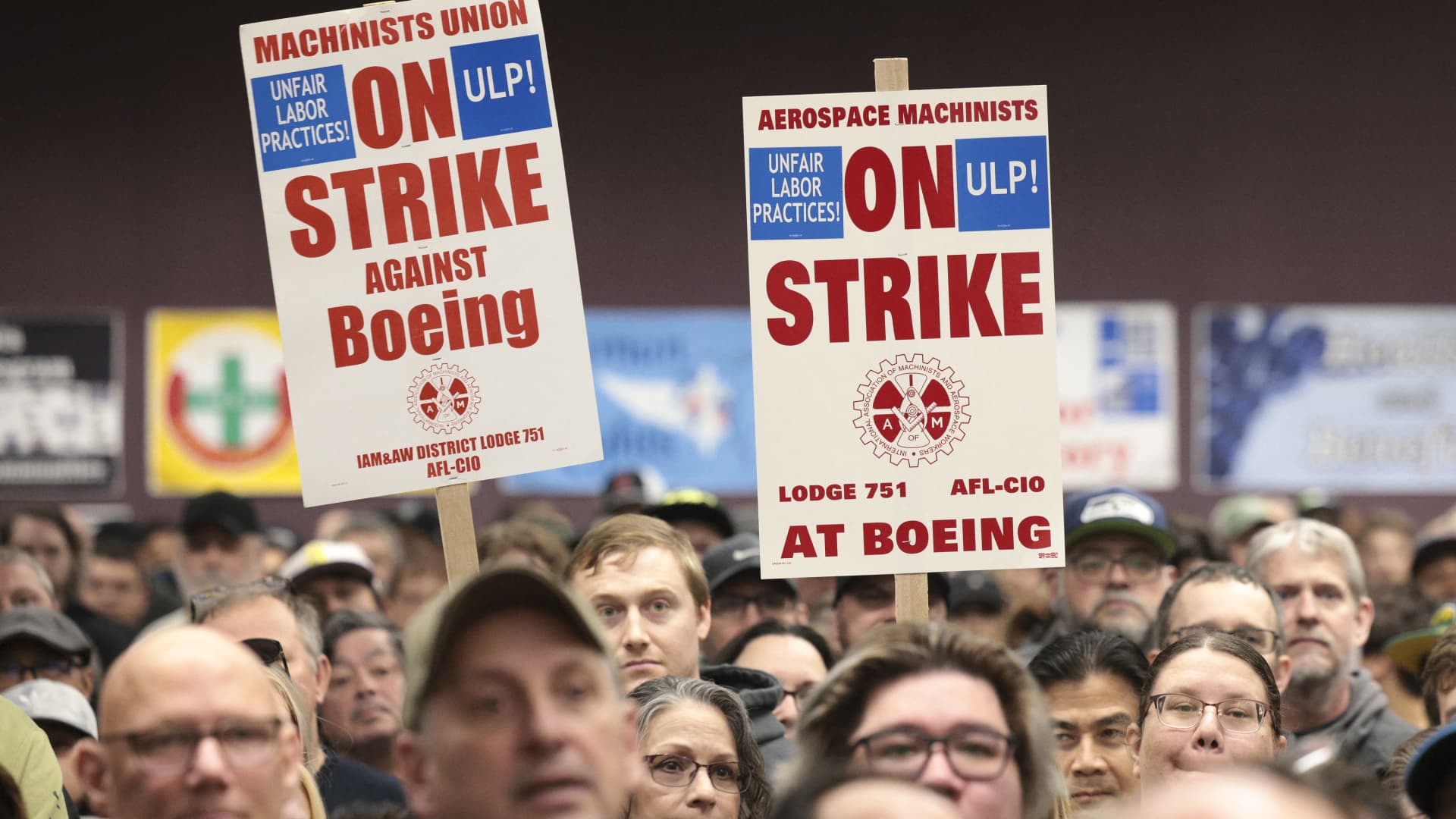Boeing machinists voted 64% against a new labor deal that included 35% wage increases over four years, their union said Wednesday, extending a more than five-week strike that has halted most of the company’s aircraft production, which is centered in the Seattle area.
The rejection is another major setback for the company, which warned earlier Wednesday that it would continue to burn cash through 2025 and reported a $6 billion quarterly loss, its largest since 2020. New CEO Kelly Ortberg said reaching a deal with machinists is a priority to getting the company back on track from safety and quality crises.
Boeing’s more than 32,000 machinists in the Puget Sound area, in Oregon and in other locations walked off the job on Sept. 13 after overwhelmingly voting down a previous tentative deal that called for 25% raises. The International Association of Machinists and Aerospace Workers union had originally sought wage increases of 40%. It is the machinists’ first strike since 2008.
The latest proposal, announced last Saturday, included 35% raises over four years, increased 401(k) contributions, a $7,000 bonus and other improvements.
Workers had pushed for higher pay amid a surge in living costs in the Puget Sound area. Some machinists were upset about losing their pension plan in a previous contract that they signed in 2014, but the latest contract also didn’t offer a pension.
Boeing agreed in the new contract to build its next aircraft in the Pacific Northwest, which had also been a sticking point with unionized workers after Boeing moved all of its 787 Dreamliner production to a non-union factory in South Carolina.
The labor strife is the latest in a long list of problems at Boeing, which started the year when a door plug blew out midair from a packed Boeing 737 Max 9, its best-selling plane, reigniting regulator scrutiny of the company.
The strike began as Boeing was working to ramp up production of the 737 and other aircraft.
This is breaking news. Please refresh for updates.

